Meat eaters aren't superficial
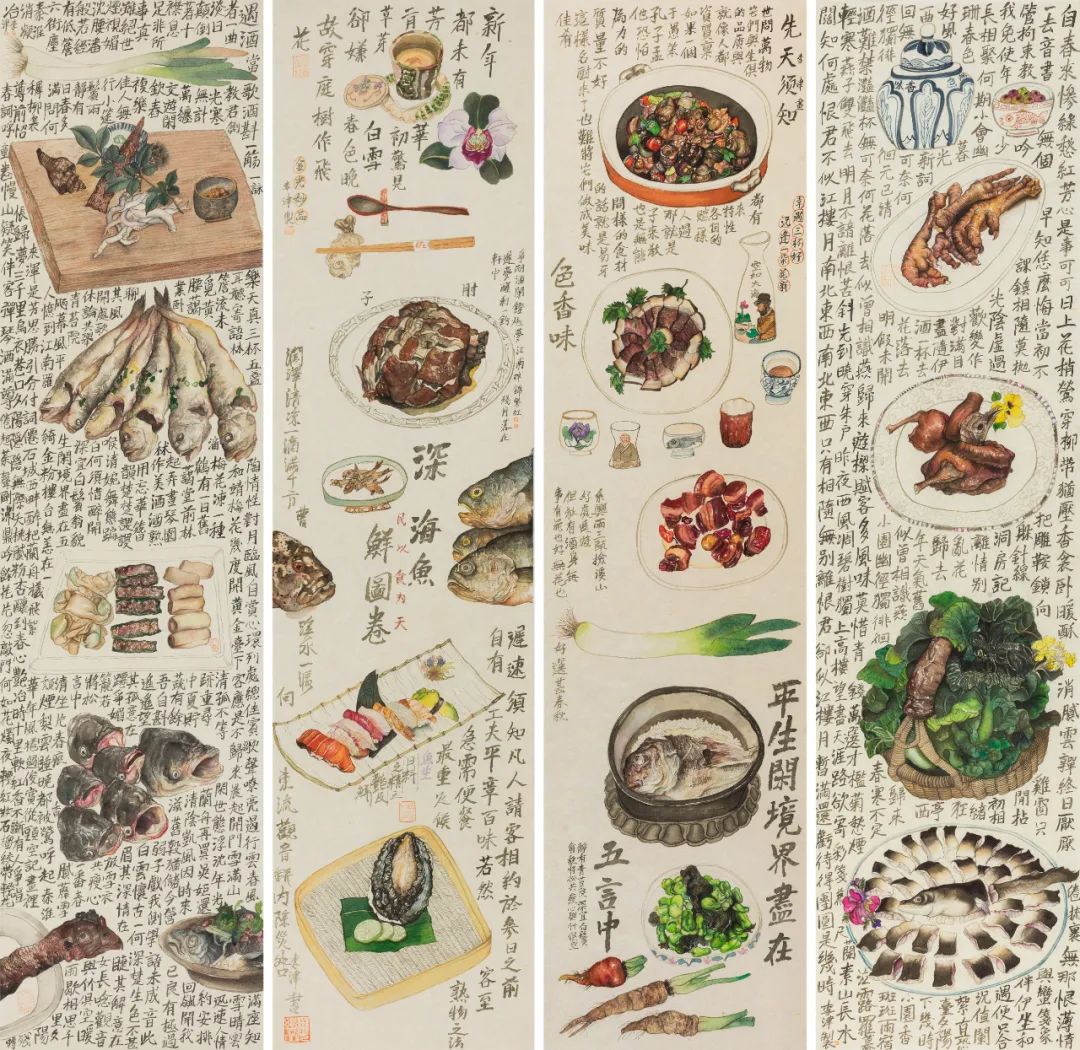
Li Jin came to Shunde at the end of August, staying for twenty days. His main purpose is to eat, drink and play, without distractions.
In Shunde, Li Jin painted most of the food and meat, not only the taste of the "gourmet city" itself, this theme in his creation lasted twenty years up, and it is said that Li Jin where to lead the food, wine, lead the laugh, but also their own culinary research, and therefore said to see the meat thought painting, hand to hand. In his own words, this is called "homemadeism", which concerns food, drink, housing and transportation, and what "tradition", "elegance" and "spirit" in Chinese painting. The "tradition", "elegance", and "spirit" of Chinese painting are all irrelevant. It is not even just to say that the customs or worldly, a single word "vulgar", vulgar to only as a carnivore looking for taste all day long, the so-called "The desire for food and sex is part of human nature", which is in line with Li Jin's character.
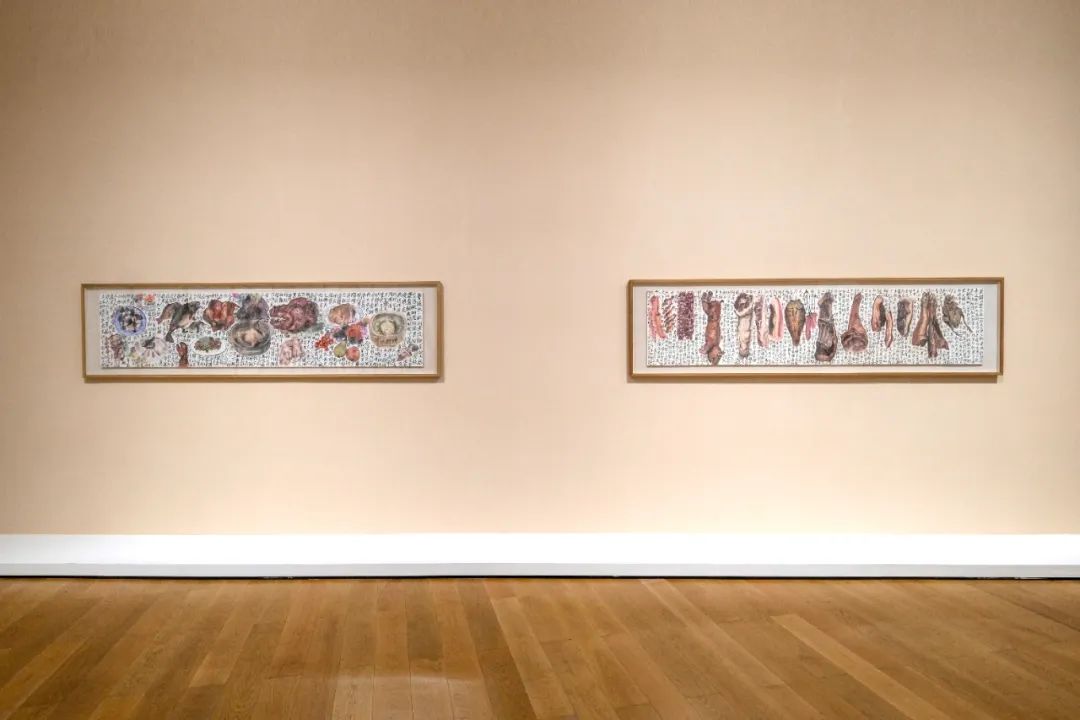
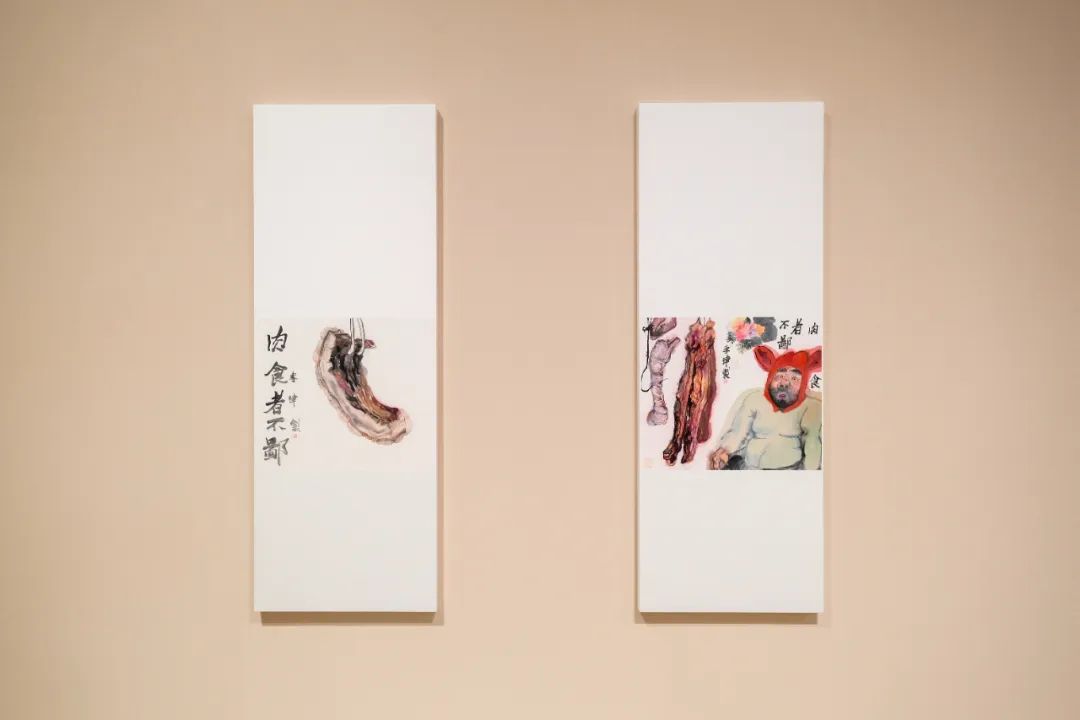
If there is a character today, a bearded middle-aged male disregard for current affairs, call on friends all day long, carrying baskets of meat, only care about the pleasure of the food, that will let people thinking about the Worldly People from Feng Gicai.
However, as a northerner, Li Jin is far away from the customs and traditions of the south, and naturally Shunde is "far enough from understanding". People often say Shunde dishes focus on seasonal and the taste of the ingredients themselves, said "clear, fresh, tender, smooth, crisp, fragrant" six flavors, "light taste forever" is the top accurate description. Li Jin's crispy roast goose, cage rice, crab and chicken pot, a pot of pigeons, that a shiver of surprise, all the simple aroma around the tongue, nuisance, plus the occasional splash of green, oily but not greasy, endless aftertaste.
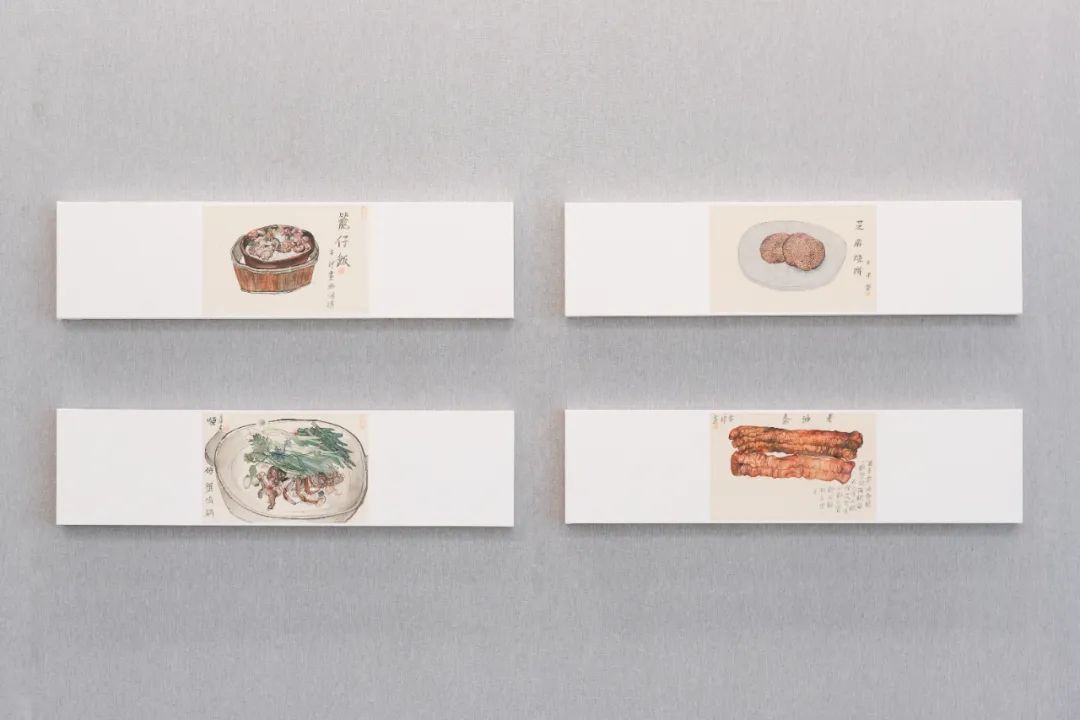
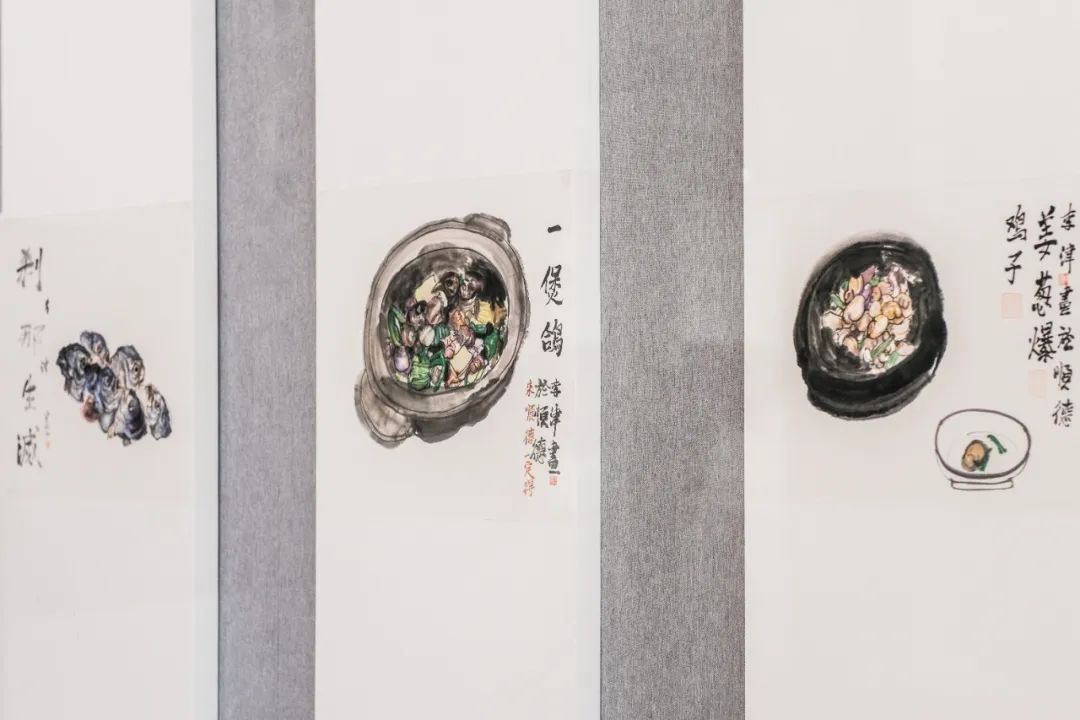
When we look at Li Jin's meat and vegetables, there is simply a difference between raw food and cooked food, and there are subtle differences in their quality. His raw meats or fresh vegetables have an absolute charm, they are not reminiscent of the frozen products in the supermarket, but rather the fresh products in the market or in the kitchen, freshly killed and cut, or washed and ready to be cooked.
This is probably because the illusion of supermarkets today has become a commercial, processing, incoming and outgoing inanimate place, for example, the raw meat, even if the blood and water are present, has made people suspicious, suspicious that it has become some kind of standard product, only as a kind of daily supply, or roughly into a certain lifestyle spokesman.
What is displayed in the supermarket can only be called food, and what is placed in the market is only qualified to be called meat. The quality of meat in the market is "vulgar". The signboard hanging in front of each house is never the same, taste, color, price, good and bad. Looking inside, the store is not large, the interior is not clean enough. But there is always a crowd of familiar customers.
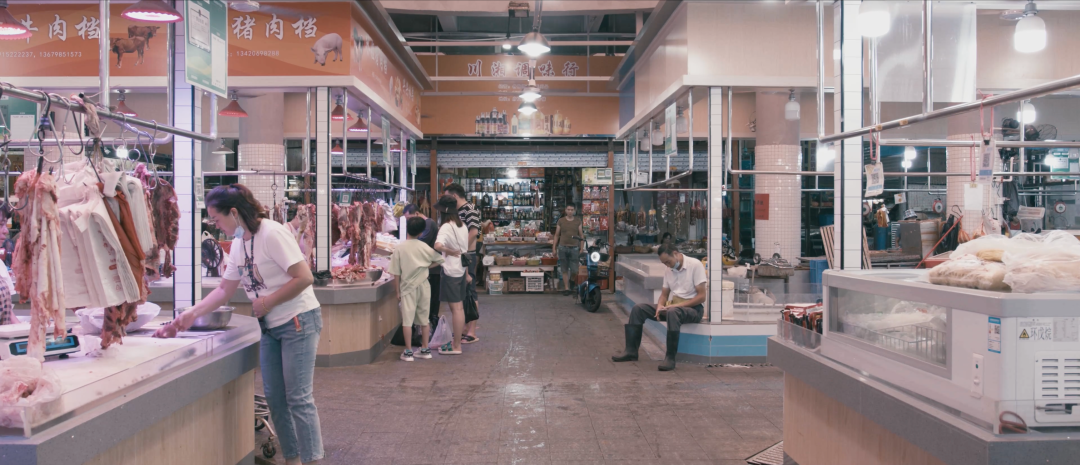
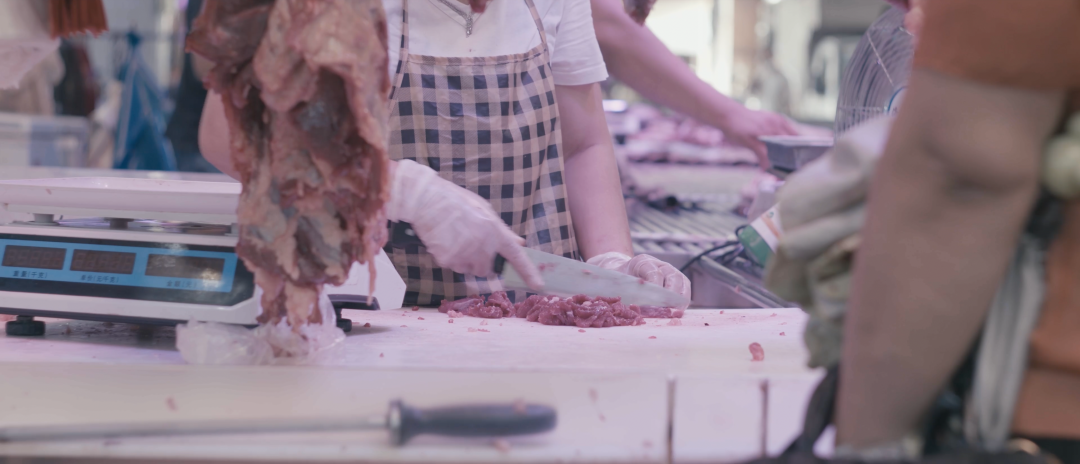
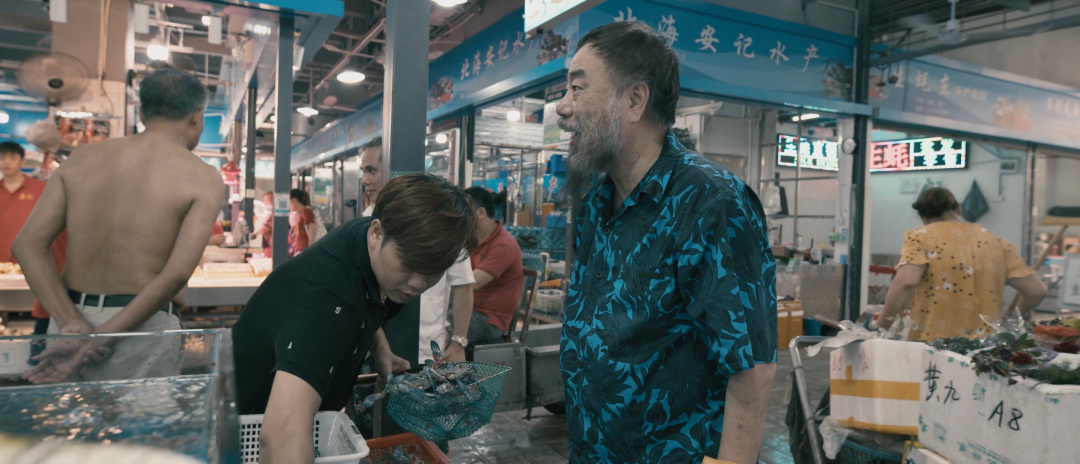
Li Jin's painting reminds people of the latter, it has such ability, the meat stored inside the most authentic vulgar scratch for you to see, with the meat a to flow juice, fragrant. But to say so, it immediately contains a rebellious meaning. When we talk about "supermarket" and "market", we are not really talking about the difference between the places in the paintings. The symbolic meaning is that the latter is an experience of "consumption", of actively wasting one's life on idleness, on imperfect meat, against efficiency, classification and rationality, against finding the "best" meat in the shortest possible time, against the anthropomorphism of meat. The "consumption" seeks the process, the humor of finding the right piece of meat, no matter if it is beef, pork or fish, as long as it is the right one, he will paint a picture and inscribe a line, like the motto of love, regardless of species.
Li Jin claims that this practice began with a trip to Tibet in the late 1980s, when he saw a human being in the eyes of a cow and a human being in a "heavenly burial", and was enlightened from then on. Look at his self-portrait, it is the consequence of being in love with meat, so he could not go away.
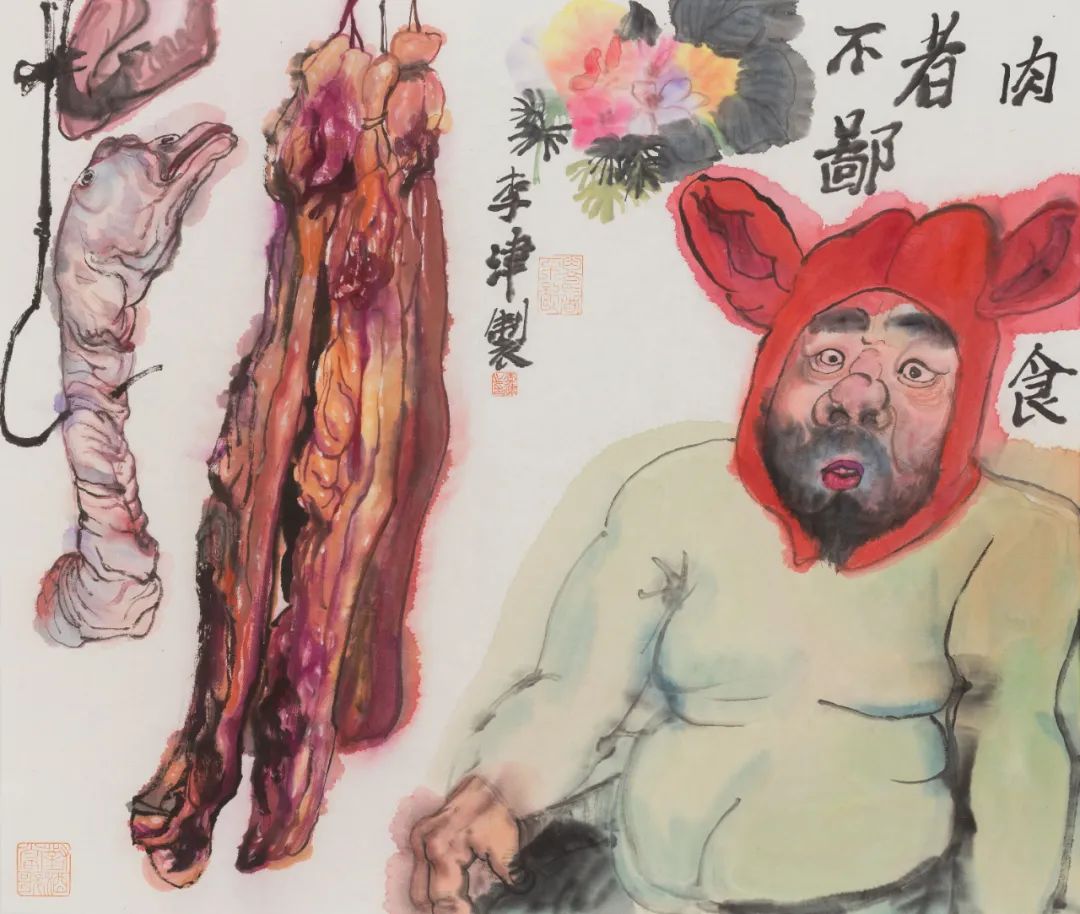
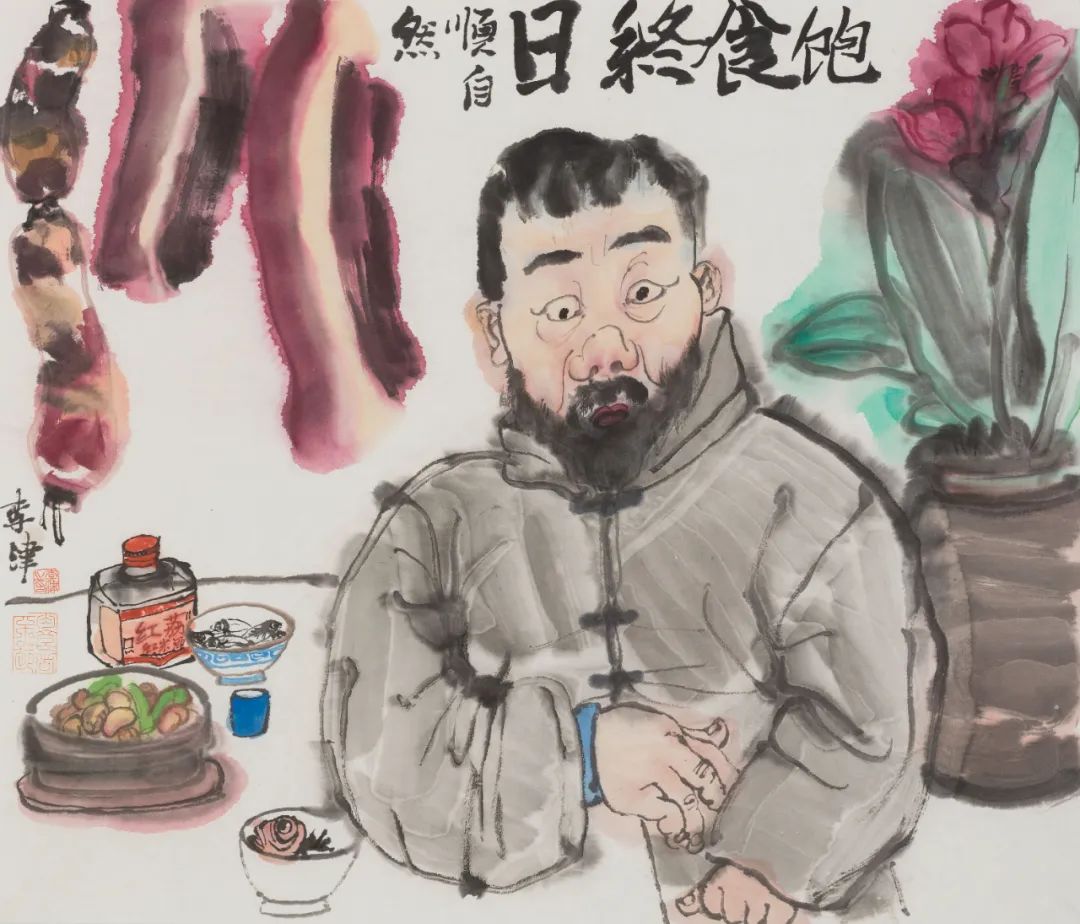
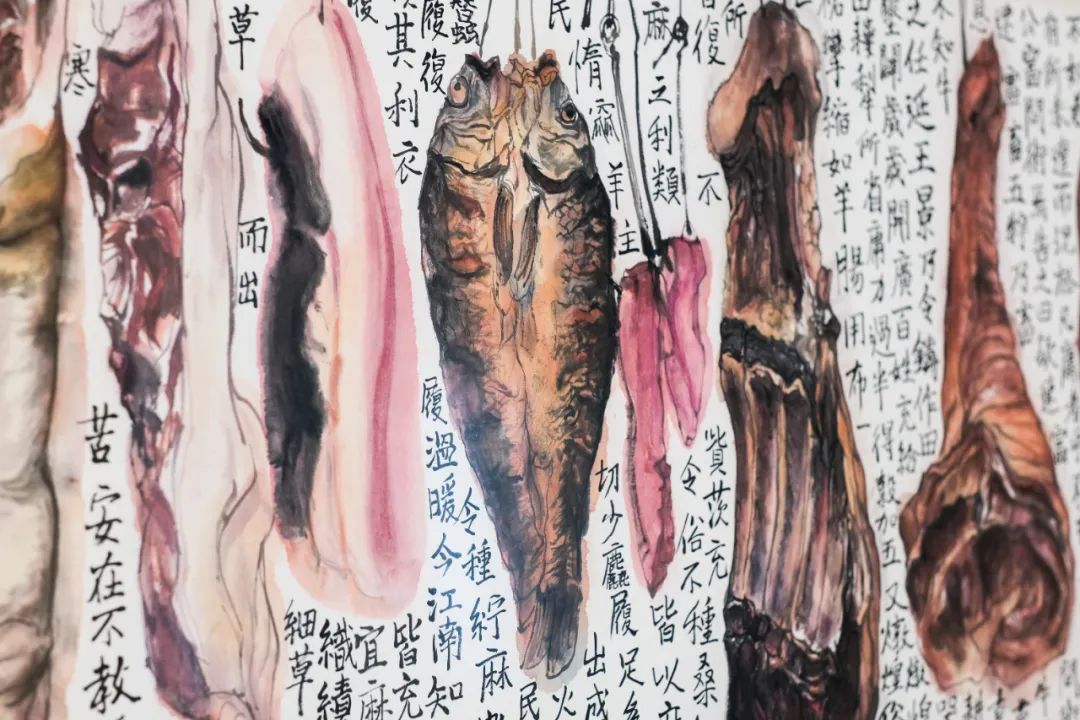
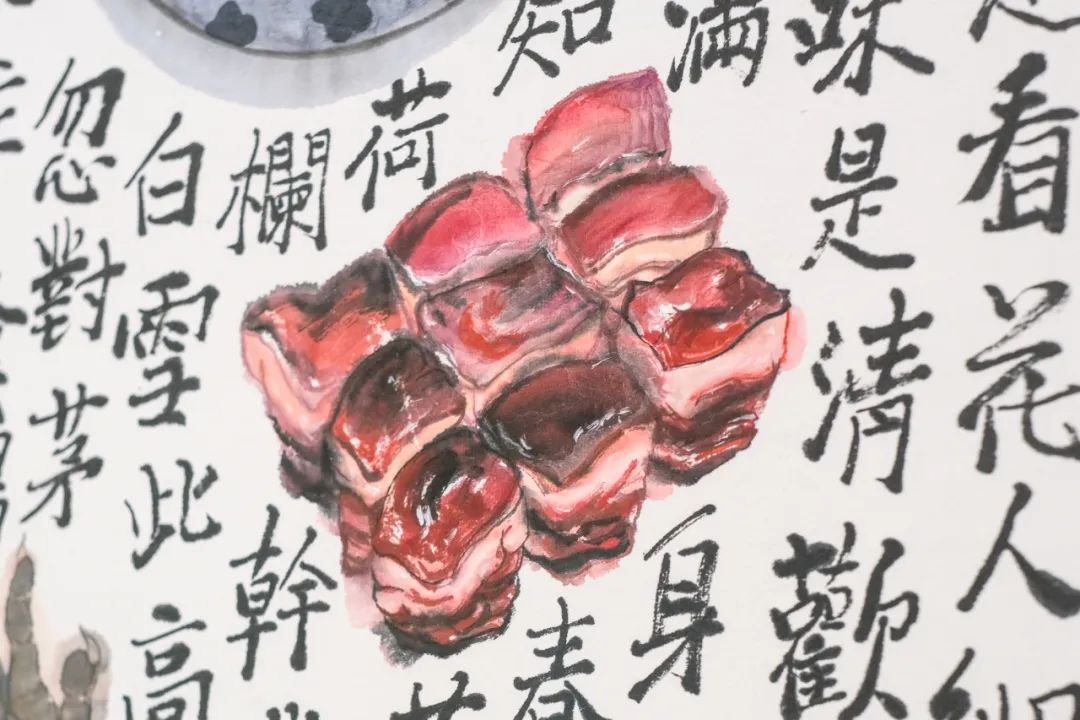
After the raw material is made into cooked food, the meaning of "seeking" recedes, and the process of chewing and swallowing becomes important. Li Jin's meaning is to "pick up the meat and eat it, take off the pants and shit, pick up the brush and draw", returning all human behavior to desire, without holding back or thinking at all. This is why his paintings of the plate of food naturally evoke the moment when the mouth opens and closes, the body trembles, and the paper heats up. This process is precisely the descent from "mundane" to "vulgar", "vulgar" to the bottom, purely about animal nature, resorting to primitive instincts.
In an interview, he said, "The old habits of living with big fish and meat are no longer in my mind here, they are naturally changed." In the interview, he said, "I don't want to live a life of big fish and big meat here anymore, and it's very natural for me to change." That said, once he returns to the world, Li Jin is still the same Li Jin, with unlimited joy.

It should be said that Li Jin is less concerned with the spirit of upward mobility, at least from the viewpoint of his works in recent years. He often describes how he has benefited from the ink and brush traditions of the modern era, such as Huang Binhong's attitude toward painting time, Qi Baishi's meticulousness in portraying everyday objects, and the ink and wash techniques of the Hai School. However, the spirit of totality and idealism in the modern vision of his predecessors are not present in him. His paintings, whether of landscapes, scenery, or meat, are often more refined than spiritual, more thoughtful than meditative, and more charming than elegant, showing the unrestrained state of contemporary life. His strategy is to seek without seeking, to eat without saying, to drink without thinking, and to enjoy without neglecting. What is the explanation? Downward transcendence, marching toward the animals, and the spiritual world suspended.
When we turn our eyes to Li Jin, by submitting downward to the natural law of desire carnality, his free perfection also becomes. Georges Bataille claims that man goes upward to the divine world in order to seek unity between consciousness and nature, which has always been an inherent requirement of Chinese painting. But Bataille also says that the return downward to the animal world is also unity, because by listening to the animal nature, by listening to nature, one is coexisting with nature in an unchanging continuum at every moment. In this way, we can jokingly say that, precisely because he stubbornly transcended downward, Li Jin opened up a new way of "the unity of heaven and man" in the spirit of the literati.
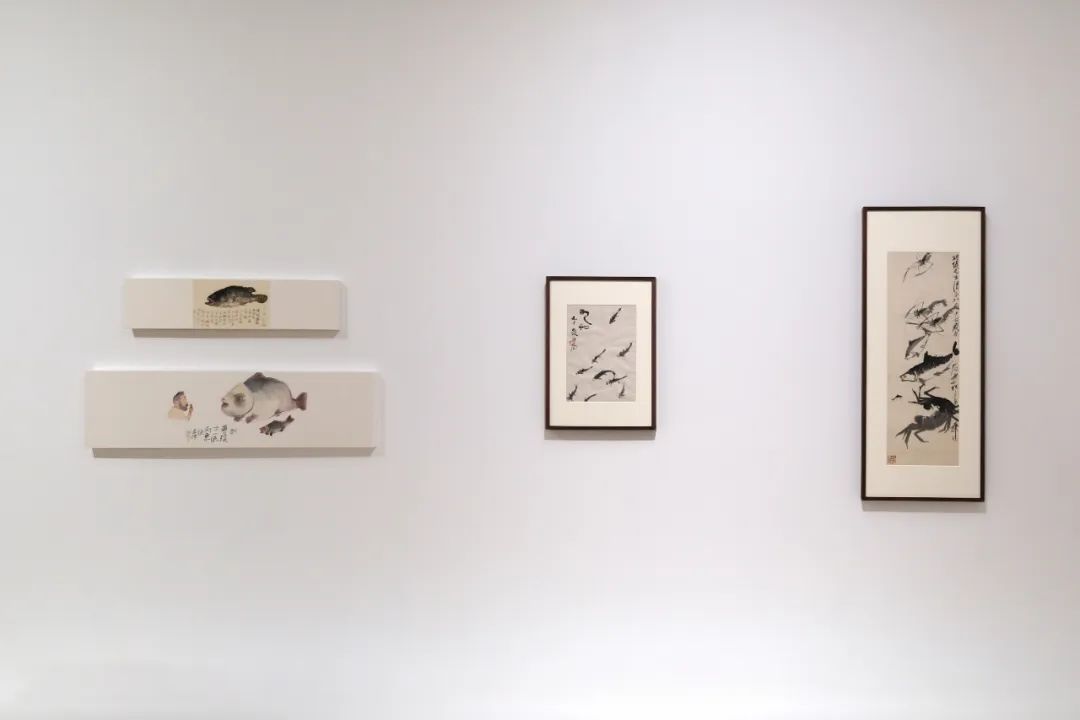
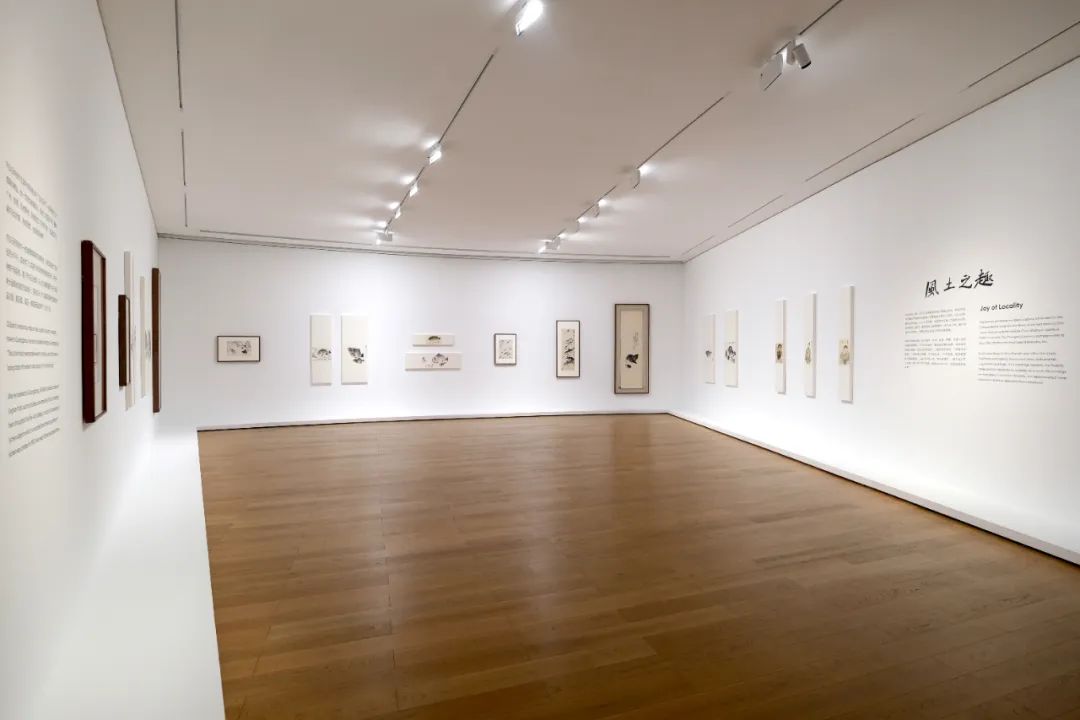
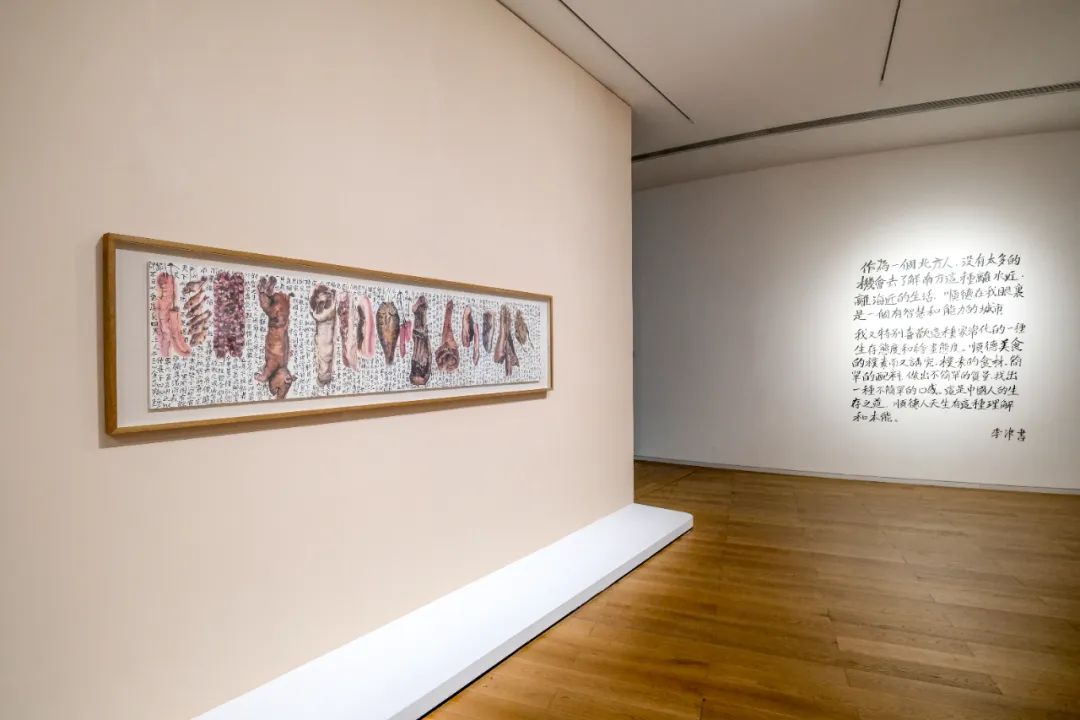
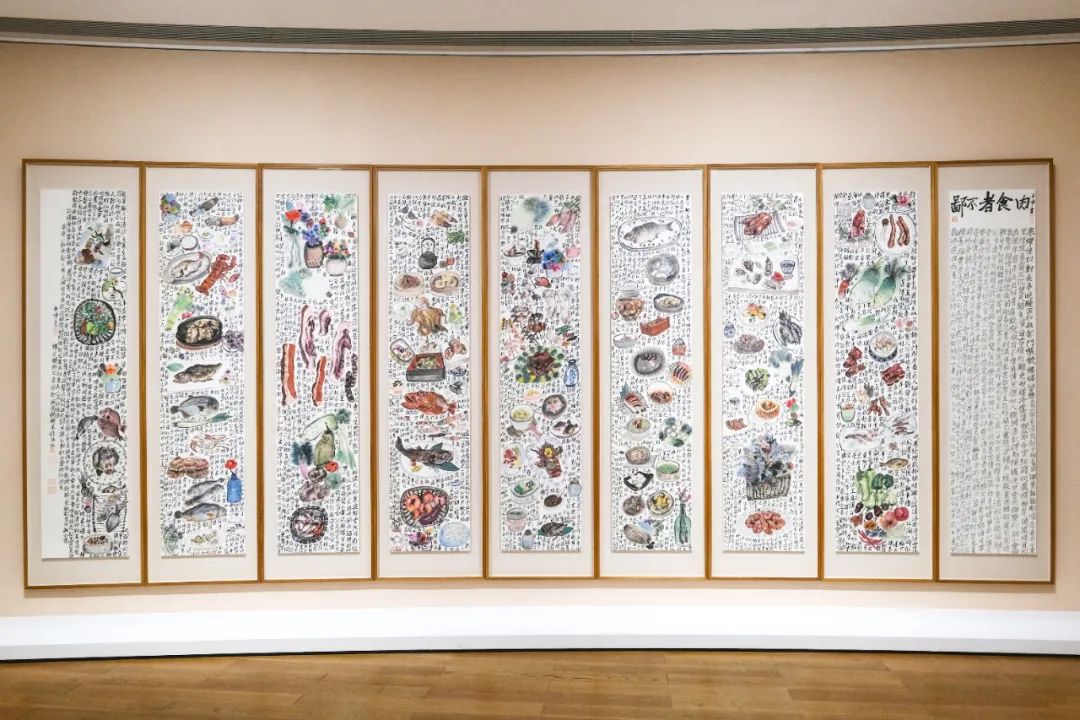
To say that Li Jin is a person who lives in yesterday and tomorrow, for him, perhaps this is the greatest scale of time, thinking about yesterday's wine, planning tomorrow's recipes, and creating and enjoying today. This is naturally different from the contemporary view of time. Today's urban men and women will never grasp themselves in such a short time scale, they are busy reconciling with the past and sprinting towards the future, and the present becomes a transition to eternity, but loses its corporeal wholeness. Li Jin opposes this.
By returning downward, the time trick of modern drama is also dismantled, and the instinctive rebellious power is regained, which is the taste of Li Jin's Chinese painting. With unchanging as change, with not commitment as commitment, eating, drinking, chewing and drinking as the wonderful experience. When talking about the meat eaters, we would say meat eaters are not superficial!
